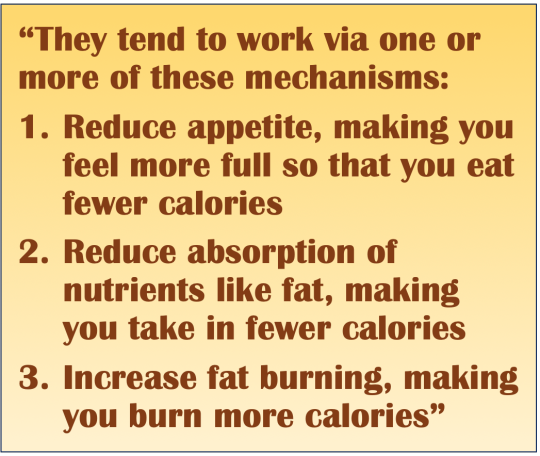#‘multi 21? is that Mark’s vitamin pill?’
Text
My favourite F1 Magazine covers Part 2:










#I love seb’s cover 😭#‘multi 21? is that Mark’s vitamin pill?’#that ate I fear#sebastian vettel#fernando alonso#max verstappen#michael schumacher#mika hakkinen#ralf schumacher#kimi raikkonen#rubens barrichello#mark webber#nico rosberg#formula 1#f1#f1-off track#f1 magazine#f1 racing
836 notes
·
View notes
Video
youtube
Welcome to day 24!
So last time I was specifically talking about prescription medications. Today I’m talking about diet pills. Now, before you jump to either attack or defend, let me clarify. There are over-the-counter and as-seen-on-tv and late night infomercial kinds of diet pills. And then there are actual, doctor-prescribed medications. We’re going to talk about the first kind today.
Healthline explains how most of these things work:

Of course, the first question is then, do they actually do those three things?
The Mayo Clinic cuts right to the chase. “There's no magic bullet for losing weight. The most effective way to lose weight and keep it off is by eating a healthy low-calorie diet and being more physically active. Weight-loss pills — prescription drugs, nonprescription drugs, herbal products or other dietary supplements — are all, at best, tools that may help with weight loss. But there is relatively little research about these products. The best studied of these are prescription weight-loss drugs.”
So, that said, let’s look at non-prescription pills first.
WebMD is not impressed. “Anyone who has watched TV after midnight has heard the claims. Eat all you want, never exercise, and still lose weight with this little pill. Unfortunately, scientific research has not borne out such claims. These products are categorized as dietary supplements, not as drugs. According to current FDA regulations, that means nobody has to prove that they work.”
Yes, you heard that right. They don’t even have to work. That means, that instead of having to be proved effective first, they can just be sold to people by any schmuck. And if people get hurt, you don’t have to stop selling them until the FDA proves they are bad. MADNESS!
So, that said, what are in these supplements? Well, there are all kinds of different “main ingredients” in these things, and they can be marketed in different ways. Some are pills or capsules, some are liquid drops or shots, and sometimes they are made into drink mixes or snacks or things.
And they, as Healthline notes, can work in different ways. First are Fat-trappers. “Fat-trapping products generally contain chitosan. It comes from the powdered shells of shrimps, crabs, and other shellfish. Supposedly it binds to fat in the food you eat, keeping it from being digested. While there is evidence that it does help prevent you from absorbing dietary fat, its effects may be too small for you to actually notice anything. A few small studies have shown that people on calorie-restricted diets lose slightly more weight if they're taking chitosan.”
Of course, there are good fats, and good things that hitch a ride on fats, like vitamins, that can be excluded by these supplements.
Then there are fat-burners and appetite suppressants, which tend to go hand in hand. “Fat burners are generally some combination of herb-derived stimulants, essential fatty acids, chromium picolinate, pyruvate, and/or hydroxycitric acid. [...] Two or three of these stimulants are usually 'stacked' together in one weight loss product, often along with aspirin or willow bark. They are supposed to increase energy while stimulating fat burning. Most experts agree they do work when combined with exercise. Their safety, however, is another matter.”
And we’ll explore those more in depth now.
So first I’ll look at Garcinia cambogia extract, which “became popular worldwide after being featured on the Dr. Oz show in 2012. It is a small, green fruit, shaped like a pumpkin. The skin of the fruit contains hydroxycitric acid (HCA). This is the active ingredient in garcinia cambogia extract, which is marketed as a diet pill.”
Now, as much as you might love Dr. Oz, Healthline reports that he might have missed the mark here, because a year earlier. “A 2011 review that looked at 12 studies on garcinia cambogia found that, on average, it caused weight loss of about 2 pounds (0.88 kg) over several weeks”.
Now, generally speaking, improving your diet and exercise just slightly often results in losses of a pound or two a week, so 2 pounds in several weeks is not that impressive.
Another one that you’ve probably heard of, and which has slightly more impressive stats, is Hydroxycut. This has several “weight loss” ingredients, including caffeine.
There has only been one study on this, apparently, but while it did conclude that users would lose 21 pounds in three months, one short term study isn’t super reliable.
Of course, 3 months is roughly 12 weeks, and 21 pounds in 12 weeks is again, 1-2 pounds a week, or what you can easily achieve with slightly better diet and exercise.
Other people try straight caffeine pills, Green Tea Extract, or just lots of coffee or green tea to try to lose weight. People also take Green Coffee Bean Extract, which is basically just raw coffee beans, and again, that’s for the caffeine.
But, Hydroxycut and all other caffeine-heavy supplements run into the same problem, as Healthline warns. “If you are caffeine sensitive, you may experience anxiety, jitteriness, tremors, nausea, diarrhea and irritability. Caffeine is also addictive and can reduce the quality of your sleep.”
So I used to work with this gal who was so lazy; she would want to sit around and not even do our jobs. And then if she had to actually do something, she would pop a caffeine diet pill and it was like she was on a mild form of speed. She would hurry around, fussing with things, and still not getting anything effectively done, and then she would be jittery and annoyed the last half of the shift.
So this is not a great way to live. And again, the weight loss effects seem minimal.
Now, one supplement that works in a very different way is Glucomaannan. According to Healthline, “Glucomannan absorbs water and becomes gel-like. It "sits" in your gut and promotes a feeling of fullness, helping you eat fewer calories. [...] Glucomannan is a fiber that can feed the friendly bacteria in the intestine. It can also lower blood sugar, blood cholesterol and triglycerides, and is very effective against constipation.”
So that’s different, and makes some sense. Again, though, the results are 8-10 pounds in 5 weeks, which is 1-2 a week.
Meratrim, like Hydroxycut, only has one study on it, and again the results are in the 1-2 pounds a week range. But, like Glucomannan, it has a kind of unique process. “It is claimed to make it harder for fat cells to multiply, decrease the amount of fat that they pick up from the bloodstream, and help them burn stored fat.”
Finally, something called Raspberry Ketones. Theoretically they break down fat and thus cause weight loss. But, there is only one human study, from 2017, and the Mayo Clinic points out so huge problems with the data.
Of the just 70 people who participated, only 45 completed all eight weeks. Which is ridiculously short, for a trial, FYI. And their average weight loss was just 4.2 pounds, which in 8 weeks is barely more than 1 pound a week. That’s low, as these things go.
“The eight-week trial used a multi-ingredient supplement with raspberry ketone, caffeine, bitter orange, ginger root extract and garlic root extract, as well as other herbs, vitamins and minerals. [...] All of the participants were placed on a restricted diet and exercise program.”
Of course, as Mayo explains, “the supplement included multiple ingredients, making it impossible to judge which ingredients helped the weight loss.”
So those are super modest, short term results, from one of the dozen things in that pill (Which, remember, includes caffeine), or possibly just from the diet and exercise they also did.
I buy that even less than the other things I’ve covered today.
Now, relatively speaking, these are “healthy”, or at least “not too dangerous” supplements.
There are dangerous ones.
“Conjugated Linoleic Acid,” or CLA, causes slight weight loss (0.2 pounds a week), but has these side effects, according to Healthline. “CLA can cause various digestive side effects, and may have harmful effects over the long term, potentially contributing to fatty liver, insulin resistance and increased inflammation.”
And that’s nothing on ephedrine!
This one you might have heard about on TV, as it was banned, but it isn’t as gone as you might think.
Harvard Health explains. “In December 2003, the U.S. Food and Drug Administration announced it was banning the sale of products containing ephedra. This announcement heralded the first time the agency has banned an herbal supplement. Its decision was based on extensive research involving more than 16,000 reports of adverse health effects from products containing ephedra. These studies clearly indicate that ephedra is dangerous. And it can kill. Roughly 155 deaths have been blamed on the amphetamine-like stimulant.”
Yes, amphetamine-like. Remember when I compared caffeine diet pills to mild speed? Well this is the non-mild version. And it sped up people’s hearts so much that they died.
“A variety of studies associate ephedra use with cardiovascular problems, including high blood pressure, palpitations, and heart attacks. Side effects of the herb include heart palpitations, nausea, and vomiting. More than 800 dangerous reactions have been reported - among them, heart attacks, strokes, seizures, and sudden death. Psychosis, insomnia, and heatstroke have also been reported.”
But there are people who don’t seem to care, and just want their speed back. In fact, according to Harvard Health, “Some people who think ephedra helped them lose weight are looking to new herbs and natural extracts to replace the banned dietary supplement. Topping the list of new ingredients is caffeine.”
Yeah, there’s that caffeine connection again. And, it isn’t alone.
“A type of orange called bitter orange contains the compound synephrine. Synephrine is related to ephedrine, which used to be a popular ingredient in various weight loss pill formulations. [...] Synephrine shares similar mechanisms with ephedrine, but is less potent. It can reduce appetite and significantly increase fat burning”
Now, there are few studies on synephrine itself, but it appears to have the same potential heart issues and can be addictive! So, you know, like speed!
I mean, I feel like this should go without saying, but the world we live in right now… *Don’t take supplements or drugs to lose weight that act like speed!*
And, of course, the Mayo Clinic warns, “If you're considering weight-loss pills, be sure to talk with your doctor, especially if you have health problems, take prescription drugs, or are pregnant or breast-feeding. It's also important to get advice on possible interactions with your current use of medicine, vitamins or minerals. Your doctor can also offer advice on losing weight, provide support, monitor your progress or refer you to a dietitian.”
So like how last time our theme was “Don’t stop before you talk to your doctor,” today the theme is “Don’t start these before you talk to your doctor!” These might be over the counter, and not need a prescription, but that doesn’t mean that they might not interact with your prescriptions.
So talk to your doctor. Again. ;)
And another quick disclaimer that goes along with this comes from a different WebMD article on what NOT to do to lose weight.
““The potential risks associated with abusing drugs such as cocaine, speed, and meds prescribed for attention deficit disorder, thyroid disorders, or diabetes to lose weight far outweigh any health benefit you may get from weight loss," says nutrition counselor Jeannie Gazzaniga-Moloo, PhD, RD. Risks include addiction, relationship and financial problems, anxiety, severe headaches, stroke, and heart, lung, and kidney problems.”
Again, this might seem like a no brainer. Don’t use coke or actual speed or whatever to lose weight. But the important part isn’t the illegal drugs. The important part is the prescription meds. I know in college lots of people would talk about buying ADD meds so they could focus and stay up all night to write a paper, even though they don’t have ADD.
And lots of people have found that there are prescription meds that can have a side effect of making you lose weight. But, like, *DON’T DO THAT*.
Okay, so that is what I wanted to cover with non-prescription diet pills and supplements. And keep in mind from last time, when we talked about inactive ingredients, that supplements can have just as much gunk in them! So if you do decide to try one of these, be careful of that too!
This has been Roly Poly Weight loss. As always, I am your host, Roly Poly. If you feel comfortable, please share your experiences with the hashtag #DietPill. Are there any supplements you’ve heard of that I haven’t mentioned? Please share!
And please join me next time!
#RolyPoly#DietPill#dieting#heath#healthy#Health & Fitness#fitness#fitblr#weight loss#losing weight#weightloss#workout#working out#Workout Plan
0 notes